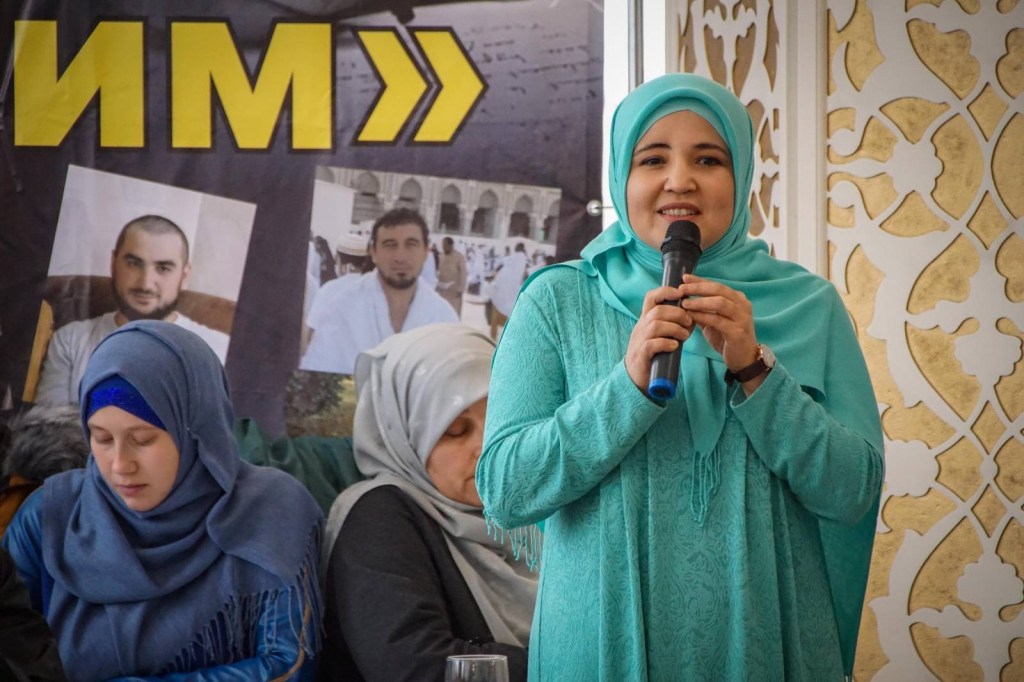New York, May 9, 2023—Authorities in the Russian-occupied Ukrainian peninsula of Crimea must stop intimidating journalist Lutfiye Zudiyeva and let members of the press work freely, the Committee to Protect Journalists said Thursday.
On Monday, May 6, an officer with Russia’s Ministry of Internal Affairs in the city of Dzhankoi, in northern Crimea, came to Zudiyeva’s home to question her but she refused to answer, according to the journalist, who spoke to CPJ and posted a video of the visit on X, formerly Twitter, and a report by local human rights group Crimean Solidarity.
The next day, another officer with the Ministry came to her home and asked her to sign a document warning her about the “inadmissibility of violating the law,” Zudiyeva reported on Facebook.
Both agents said they were “executing the order of higher authorities” Zudiyeva told CPJ.
“Lutfiye Zudiyeva is one of few remaining independent journalists in the Russian-occupied Ukrainian region of Crimea. She should not be pressured over her crucial reporting of human rights issues in the peninsula,” said Gulnoza Said, CPJ’s Europe and Central Asia program coordinator. “Authorities must immediately stop harassing Zudiyeva and let members of the press work freely.”
The officer who spoke to Zudiyeva on Monday said he was with the criminal investigation department of the Ministry’s Dzhankoi branch and that he was sent by the Crimean branch of the Ministry of Internal Affairs’ Center for Combating Extremism, but he did not reveal the purpose of the questioning, those sources said. Zudiyeva refused to be questioned.
The document Zudiyeva signed on Tuesday stated that the journalist is aware of her “responsibility for violating” the rules of mass protests, according to Crimean Solidarity. This document, which does not have any legal force, can be used as an aggravating factor to prosecute her if she were to cover an event that the authorities have deemed illegal, she told CPJ, adding that neither the document nor the police officer specified the basis of the warning, what event was at issue, or how the journalist was connected to it.
“In fact, they use this document as an act of psychological pressure to deter the journalist from [covering the event] and make them engage in self-censorship,” she said.
On Monday, several local lawyers and activists were handed down similar warnings.
“The practice of issuing warnings in May is a long-standing one. We assume that this is related to the upcoming date of May 18, the anniversary of the [Soviet authorities’] deportation of the Crimean Tatar people [in 1944],”she said. “Traditionally on these days in Crimea there are many events of different nature, including mass gatherings of Crimean Tatars at memorials […], as well as collective prayer services in all Crimean mosques”, Zudiyeva told CPJ, adding that “huge rallies” were previously held in the center of Simferopol, Crimea’s capital, but that the Russian authorities had banned them. “Naturally, journalists have tried to cover these events, because this date is important both for Crimean Tatars and for other residents of the peninsula,” she said.
Zudiyeva has covered the plight and trials of Crimean political prisoners as a member of Crimean Solidarity since 2016. She joined the editorial staff of Ukrainian media project Graty in July 2021 and is interning in the field of forensic journalism and storytelling, she told CPJ.
In July 2023, a Crimean court fined Zudiyeva 12,000 rubles (US$132) and charged her with participating in an illegal protest “with the purpose of subsequently giving information in the media.” In February 2024, officers with the Center for Combating Extremism searched Zudiyeva’s house, seized her technical equipment and detained her for around six hours, according to media reports.
Since 2019, Zudiyeva has been fined three other times, for a total amount of 6,500 rubles (US$71), in connection with her posts on social media, she told CPJ. She received the last two fines following the February search.
Crimean Solidarity is a support group that helps Crimean political prisoners by publicizing their prosecution and advocating for their release, as CPJ has documented. Since Russian authorities cracked down on independent media in Crimea after annexing the peninsula in 2014, many have engaged in “citizen journalism,” particularly focused on human rights issues affecting Crimean Tatars, according to media reports and CPJ’s research.
Russia held at least 10 Ukrainian journalists in jail at the time of CPJ’s annual prison census on December 1, 2023. The number has since increased to 14.
CPJ’s call to the Dzhankoi branch of the Ministry of Internal Affairs of Russia did not connect.
[Editor’s note: The fourteenth paragraph was updated to clarify the type of journalism used after 2014.]
